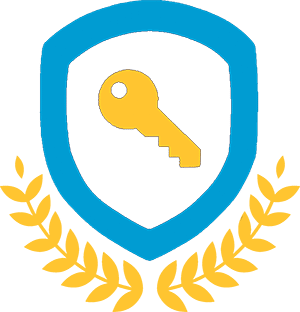Resilience: 4-Communication
Lesson Title:
Effective Communication for Interpersonal Connection
Vocabulary Word:
Communication – Exchanging information, thoughts, and feelings through verbal and non-verbal means.
Lesson Content:
Effective communication is a vital skill. When it comes to personal development, communications play a crucial role.
When I walked into a US Penitentiary at the start of my sentence, I couldn’t see anything beyond the 40-foot walls surrounding me. I was 23 years old and anticipated that decades would pass before I got out. If I didn’t learn to communicate differently, I expected that my long prison term would minimize opportunities to succeed when I got out.
To succeed upon release, I believed I would have to build my vocabulary and then learn how to put words into sentences and paragraphs.
Leaders taught me that I would have more opportunities to succeed if I could become a better communicator. To become a better communicator, I had to rely upon myself—not the prison system. But opportunities would open to transcend the walls around me if I could become a better communicator.
Strong communication skills involve expressing oneself clearly, listening actively, and connecting with others on a deeper level. By honing our communication skills, we enhance our interpersonal interactions and foster stronger relationships inside and outside the prison environment.
Understanding the concept of communication is essential for personal development:
- Clear Verbal Expression:
Effective communication begins with the ability to express oneself clearly and articulately. It involves using appropriate language, organizing thoughts coherently, and conveying messages with clarity and precision. - Active Listening:
Communication is not only about speaking; it also involves actively listening to others. Active listening means paying attention, seeking to understand, and responding appropriately. By practicing active listening, we show respect and empathy toward others’ perspectives and foster meaningful connections. - Non-Verbal Communication:
Non-verbal cues, such as body language, facial expressions, and gestures, are an integral part of effective communication. Being aware of and using non-verbal signals effectively can enhance the understanding and impact of our messages. - Empathy and Understanding:
Communication is not just about transmitting information; it’s about connecting with others on an emotional level. Empathy and understanding enable us to recognize and validate others’ feelings, creating a sense of trust and rapport. - Conflict Resolution:
Effective communication skills are crucial for resolving conflicts and managing disagreements constructively. By employing active listening, respectful dialogue, and problem-solving strategies, we can navigate conflicts in a productive and peaceful manner.
Questions and Activities: Answer as you deem appropriate
- How do you understand the concept of communication?
- Why is effective communication important for personal development, particularly during imprisonment?
- Share an example of a time when effective communication helped you resolve a conflict or improve a relationship in prison. How did it contribute to your personal growth?
- How can honing your communication skills help you prepare for successful interactions and relationships after release?
- What strategies can you implement to enhance your communication skills during your time in prison?
Activity:
- Reflect on a recent conversation or interaction where your communication could have been more effective.
- Describe what could have been improved regarding clarity, active listening, or non-verbal cues.
- How would these improvements have changed the outcome?
- Identify one aspect of your communication skills that you would like to develop further. Write down specific actions you can take to enhance that skill, such as practicing active listening or seeking feedback from others.
- Remember, effective communication is a powerful tool for personal growth and meaningful connections. By honing your communication skills during your time in prison, you equip yourself with the ability to express yourself, understand others, and build stronger relationships. These skills will serve you well in your journey towards post-release success.

